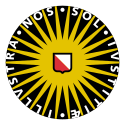
With almost 30,000 students, over 6,000 staff, and an annual budget of 765 million euros (2014), Utrecht University is one of the largest general research universities in Europe. Home of 12 Nobel prize winners, 1st within the Netherlands and 16th within Europe on the 2014 Shanghai ranking, with over 30,000 students and 650 professors and over 8000 scientific articles published each year, Utrecht University is one of the leading universities within the EU. The University conducts fundamental and applied research in a wide range of disciplines. Multidisciplinary research in Utrecht focuses on four strategic themes: Dynamics of Youth, Institutions, Life Sciences and Sustainability
Copernicus Institute for Sustainable Development of Utrecht University: Sustainability is one of the core themes of research and education at Utrecht University and the Faculty of Geosciences. Within this focus area, the Copernicus Institute of Sustainable Development investigates and develops processes and opportunities for innovative change towards sustainability. The Copernicus Institute aims to support the search for sustainable development of the energy and resource system through the development of knowledge, methods and instruments. The Copernicus Institute deals focuses on multidisciplinary challenges, with natural science and social science components, whereby the components cannot be studied in isolation. Within the Copernicus Institute, the Energy & Resources (E&R) group is the central player in this domain, with a strong long-term track record in the field and linking to other groups in the Institute. The E&R Group has an established long-term high quality track record in a number of specific areas, and has grown to a significant group within the Copernicus Institute. The research of E&R focuses on sustainable energy and resource systems. The energy system faces a large transformation away from the current system to a sustainable one. Environmental sustainability, affordability, security, and social acceptance are key criteria for future energy and material systems. Pressure on the world’s ecosystems and resources is increasing rapidly, necessitating the accelerated deployment of technologies, systems, measures and governance. The issues are interconnected; specific technologies and pathways can quickly lead to trade-offs and conflicts with other issues. In the E&R group (and the Copernicus Institute) those challenges are analyzed in a variety of dimensions: from fundamental material sciences, technology assessment, to governance, scale (local to global), time, and combining bottom-up and top down approaches.
Withint the REFLEX-project, E&R research aims to provide assessments for novel technologies (e.g. industrial technologies, bio-refining, nanotechnology) and products (e.g. bio-based chemicals and plastics, composite materials) at both early- and in-development stages. E&R develops methodologies for early-stage sustainability assessments, including the use of quantitative tools (e.g. experience curves, life cycle assessment, techno-economic analysis, process design, material flow analysis). Furthermore E&R pioneers the way in the creation of knowledge related to technological and social innovation in the fields of energy efficiency, renewable energy generation, resource use and waste, infrastructure and liveability within cities. A special focus is on the role of smart grids to integrate distributed energy generation and (responsive) energy demand and the role of electric mobility.
